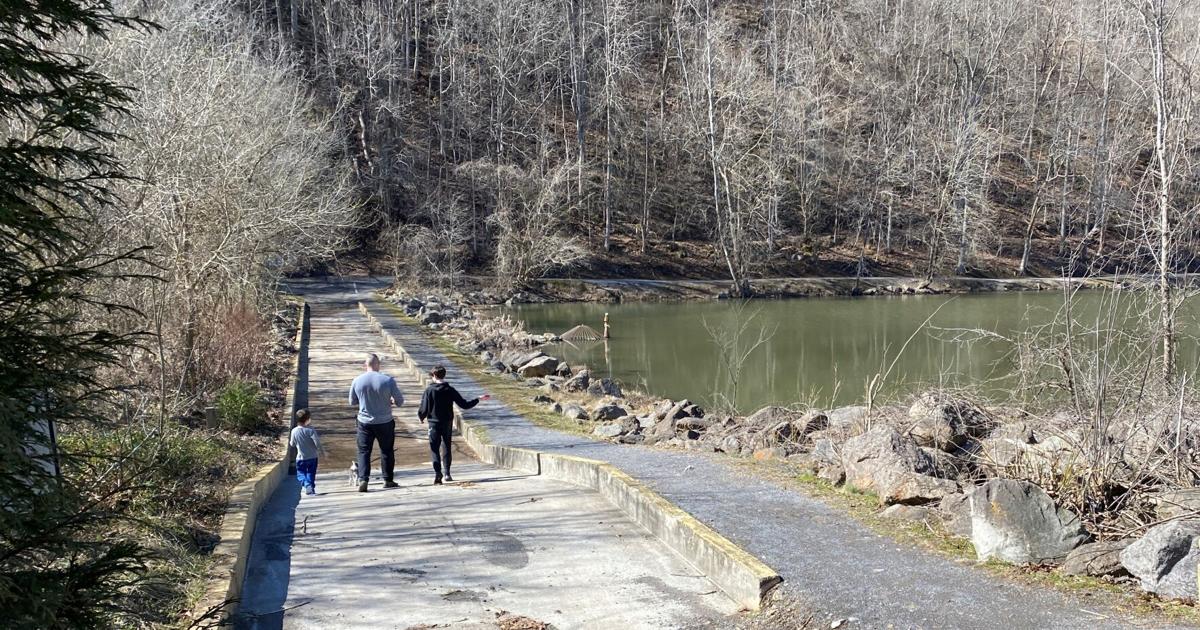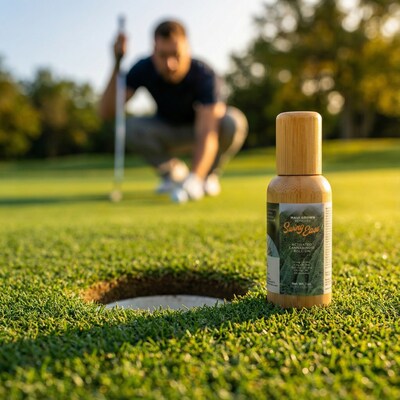Blueway town: St. Paul, home of Clinch River State Park, has outdoor and indoor options to lure tourists to its corner of the state | Recreation
ST. PAUL — Poor Baron Tubeuf.
The Frenchman, whose full name was Pierre Francois de Tubeuf, came to North America in 1791 with the dream of establishing a French settlement in the untamed wildlands of colonial Virginia. He purchased 55,000 acres in the western mountains that shaped the frontier, where European settlers and native peoples had clashed. He moved into a hilltop cabin, ignoring the fact that its previous owner, an Englishman, had abandoned the place after Indians killed his family.
Baron Tubeuf’s dream died along with him when he was murdered by a pair of local men, who robbed him, attacked his family and beat him to death. A few years later, the rest of the Tubeuf clan abandoned the land and moved back to France, leaving behind only traces of their aborted settlement.
Now, remnants of that homestead and its accompanying story are among the highlights of Virginia’s 41st and newest state park — Clinch River State Park, located on the outskirts of St. Paul, a town of about 1,000 people that straddles the Russell and Wise county line and sits above the meandering Clinch.
People are also reading…
Clinch River State Park is still being developed by the Department of Conservation and Recreation. It has ambitious plans to make the river the state’s first blueway park, which will stretch for 100 miles and connect access points like a “string of pearls,” as supporters have called it. For now, the Sugar Hill Unit, the hilly land latticed with eight miles of trails, two miles of river frontage and the remains of the Frenchman’s settlement, is the lone gateway to the new park.
“It’s a really neat concept going forward,” said Scott Bowen, the park’s manager. He said that picnic shelters, cabins, camping, a visitors center and other facilities are in the works as state funding becomes available.
Bowen, a Lee County native and a 22-year DCR employee, has managed Hungry Mother, Wilderness Road and Southwest Virginia Museum state parks, and has worked at other parks that include Claytor Lake and Natural Tunnel. This is his first experience helping to develop a state park.
“It’s going to be really great for Southwest Virginia once it’s finished,” Bowen said.
The Sugar Hill portion had been owned by Frank Kilgore, a Russell County attorney with an office in St. Paul. Kilgore is a longtime advocate for Virginia’s coalfields region, where the decline in mining and manufacturing operations over the past 40 years has left some communities resembling that old abandoned French settlement.
Kilgore developed many of the existing trails, which include a disc golf course, and had opened the property to the public for more than 20 years before selling the land to the state.
“It’s a special piece of land,” Kilgore said.
The park is open for biking, hiking, fishing, boating and other recreational activities. Some of the steep trails reward visitors with panoramic views from the hilltop, which is capped by an old fireplace and chimney built in the 1840s, right where the French settlement once stood.
When a bipartisan throng of state and local leaders celebrated the opening of the park last June, then-Gov. Ralph Northam took in the sweeping views of the mountains and said: “This is truly God’s country out here. It doesn’t get any better than this.”
The park will highlight environmental education, especially the river’s ecosystem that includes rare mussels, fish and other plant and animal species.
Local folks, though, hope that the park delivers an economic impact as well as environmental. The town is banking on visitors to come to the mountains, and spend some time and some money. For a region that lost most of its chief industries, not to mention a sizable chunk of population the past 10 years, Clinch River State Park is part of a regional economic plan that relies on the outdoors and recreation as primary attractions.
That plan is already paying some dividends. The Western Front Hotel, a 30-room boutique inn housed in an old apartment building, opened in 2018 in downtown St. Paul. The hotel attracts scads of visitors who go four-wheeling in all-terrain vehicles across the Spearhead Trails system, a sprawling 600-mile network of off-road adventure trails covering seven coalfields counties.
After a day of four-wheeling on a recent chilly Saturday, a line of mud-caked ATVs were parked outside the Sugar Hill Brewing Company, a craft brewery and restaurant housed inside an old hardware store. (The brewery’s slogan, which is printed on T-shirts worn by servers, is “I love Jesus but I drink a little beer sometimes.”) In fact, people can ride ATVs anywhere in town.
The brewery, Fat Boy’s BBQ and Giovanni’s Pizza are all walking distance from the hotel. The Lyric Theater, a 1950s-era downtown movie house, reopened for live performances after a fundraising campaign that included hundreds of thousands of dollars in grants. The town has a couple of outfitters and river-themed stores.
The state park is a big addition to the outdoor and cultural attractions.
“It’s a real boon for the town,” St. Paul mayor Kenneth Holbrook said of the park.
Even Baron Tubeuf’s story has become part of the cultural offerings. Shoestring Theater, a nonprofit community theater based in Fairfax County whose founders were raised in Southwest Virginia, will produce an original play, “The Frenchman,” Memorial Day weekend at St. Paul Elementary School.
Folks could spend a weekend in St. Paul, kayaking, biking or four-wheeling through the mountains, relaxing with a burger and a local beer, then catching a show.
Tourism had a $56.3 million impact in Wise County before the pandemic, according to the Virginia Tourism Corporation. That figure had only increased about 1% between 2016 and 2019. Local tax receipts tied to tourism remained flat during that time, too. St. Paul’s leaders hope that impact grows now that the state park has opened and many COVID-19 restrictions have eased.
“Tourism has really helped the town,” said Holbrook, the mayor. “It’s not going to be the complete supporter of the town [economically]. But it’s helping with jobs. I think the park itself can get us on the map more than we already were.”




